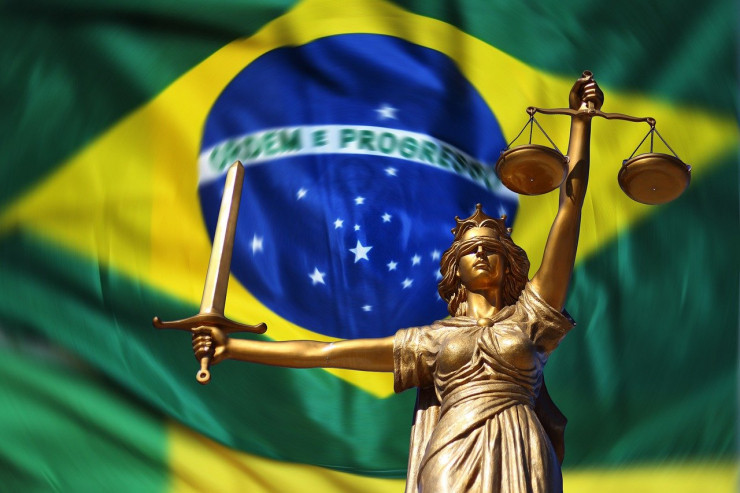Bill to legalise casinos in Brazil approved after long back and forth

At the end of June, the Brazilian Justice Committee approved a bill that has been under discussion for several years. The approval of Decree 2.234/2022 regulates the legal establishment and operation of casinos throughout the country. It has been a long road, but it is still not quite over.
After years of back and forth, the Brazilian Justice Committee has approved bill 2.234/2022 to legalise casinos. Such gambling houses have been banned in the country since 1946. This historic decision marks the end of a long and often controversial journey.
Supporters of the law emphasise the potential economic benefits, including the creation of new jobs, increased tax revenues and the promotion of tourism. They argue that Brazil can compete with other tourist-attracting countries by offering luxurious casino resorts that attract international visitors.
Critics, on the other hand, express concerns about the social impact, such as the risk of increased gambling addiction and possible involvement in criminal activities. Despite these objections, the bill was ultimately approved by a majority, heralding the beginning of a new gambling era in Brazil, where casinos could be allowed again after decades.
‘Could’ because, on the one hand, the decision was not very clear and, on the other, the legalisation of casinos with the approval of the Justice Committee is still not 100 percent a done deal. Other institutions need to give the green light.
What the draft law allows
The now approved draft law, marked ‘2.234/2022’, includes a variety of regulations for the legalisation and regulation of gambling in Brazil. In particular, it authorises the operation of casinos and lottery games and also allows local betting on horse racing.
- A central component of the draft is the authorisation to establish casinos in tourist areas or in integrated leisure complexes that fulfil certain criteria. These include, for example, upscale hotels with at least 100 rooms that also have restaurants, bars and venues for conferences and cultural events.
- The bill also stipulates that each Brazilian state and federal district is authorised to operate at least one casino. However, there are exceptions: In the state of São Paulo, up to three casinos may be operated, while in Minas Gerais, Rio de Janeiro, Amazonas and Pará, up to two casinos each are permitted.
The narrow result points to further resistance
Senator Irajá from the social democratic Partido Social Democrático was particularly in favour of approving the bill. However, there are still many critics. In fact, the decision was only taken with 14 votes in favour and 12 against, which is anything but clear. The narrow result clearly indicates that the matter could still face some opposition. Approval in the plenary session of the Chamber of Deputies is therefore jeopardised.
In this context, Eduardo Girão from the right-wing liberal party Novo explained that several senators who have positioned themselves as clear opponents of the bill in the past did not attend the meeting in question and the vote. This would have clearly contributed to the authorisation of the bill.
Irajá nevertheless sees a lot of positives - he once again mentions the major benefits for Brazilian tourism:
‘This is a very important project for Brazil because it will change tourism. Unfortunately, Brazil is not well positioned as one of the world's international tourism routes - and this is a great opportunity for us to create tourism complexes here, such as integrated resorts, which are successful models all over the world and which countries competing with Brazil have been adopting for decades.’
He also points to the financial support for the population and the opportunity for tax revenue:
It is an opportunity for Brazil to create jobs, generate income and, above all, generate taxes from these games that are present in the lives of Brazilians and that, unfortunately, do not bring any benefit to our population.’
In his second statement, Irajá apparently also addresses the fact that thousands or even millions of reais are currently being generated through illegal lotteries, dice games and other games. The state has nothing to gain from this.
Chamber of Deputies, Senate and President still have to give their go-ahead
In Brazil, a bill goes through several stages before it can come into force. The following steps are necessary after approval by the Judiciary Committee:
- Chamber of Deputies: Once the Justice Committee has approved the draft, it must be submitted to the Chamber of Deputies (Câmara dos Deputados). The Chamber of Deputies discusses and votes on the bill. Here, the bill can be accepted, rejected or amended.
- Senate: If the Chamber of Deputies approves the bill, it is forwarded to the Senate (Senado Federal). The Senate also examines, discusses and votes on the bill. Amendments can also be made here. If the Senate makes changes, the bill must return to the Chamber of Deputies for a further vote.
- President: After approval by both the Chamber of Deputies and the Senate, the bill is forwarded to the President of the Republic. The President has the option of signing the bill into law or vetoing it.
- Veto override (if necessary): If the President vetoes the bill, Congress (consisting of the Chamber of Deputies and the Senate) can override the veto with an absolute majority in both chambers to still enact the law.
Conclusion
Image source: https://pixabay.com/illustrations/law-justice-court-of-justice-flag-6597468/

0 Comments to: Bill to legalise casinos in Brazil approved after long back and forth
write a commentOur community thrives on your feedback - so let us know what you think!
Would you like to write comments on GambleJoe yourself? Then just create a GambleJoe User Account.